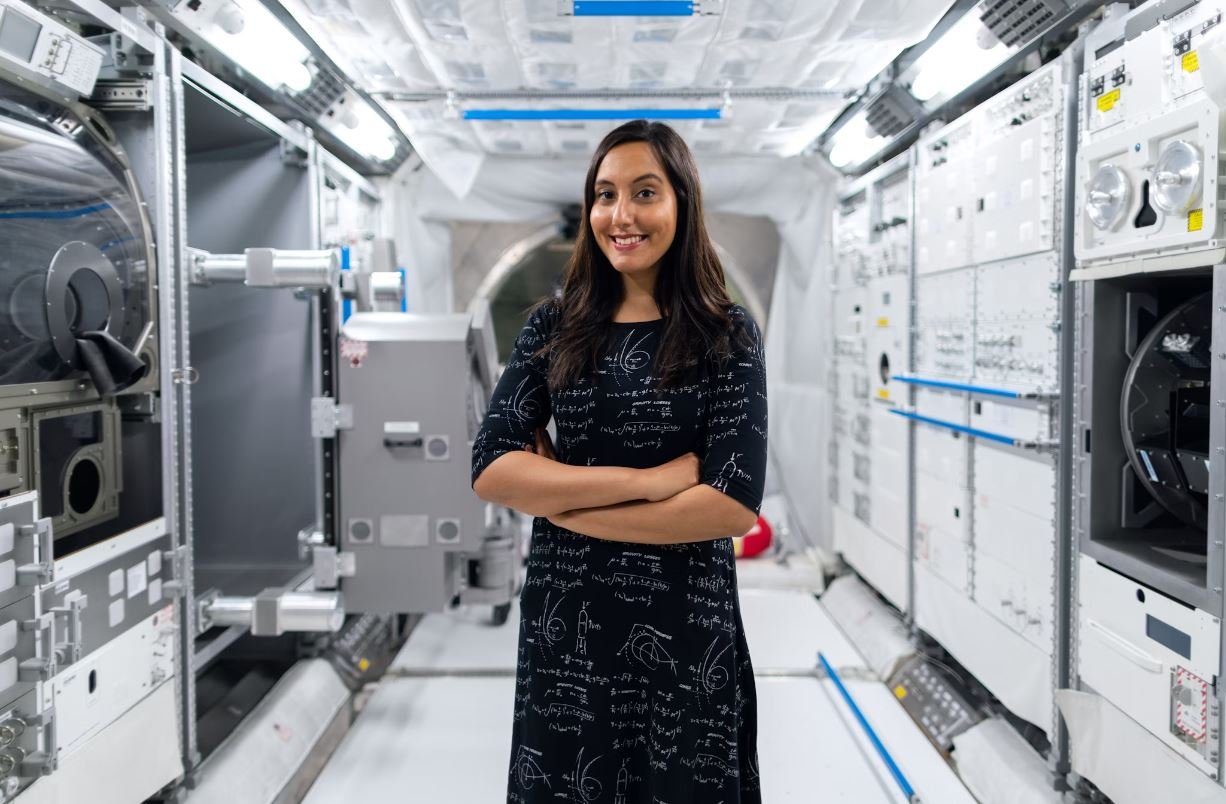Artificial Intelligence Benefits to Society
Artificial Intelligence (AI) is revolutionizing numerous industries and transforming our daily lives. With its ability to process and analyze vast amounts of data, AI has become an indispensable tool in fields such as healthcare, finance, transportation, and more. This article explores some of the key benefits that AI brings to society.
Key Takeaways:
- AI improves efficiency and accuracy in various industries.
- AI enhances decision-making processes.
- AI enables personalized experiences and recommendations.
- AI assists in the discovery and development of new treatments and drugs.
- AI contributes to safer and more autonomous transportation.
- AI raises concerns about privacy and ethical considerations.
1. Increased Efficiency and Accuracy
In many industries, AI technology helps automate repetitive tasks and streamline workflows, leading to increased efficiency and reduced human error. With AI-powered systems taking care of routine processes, human professionals can focus on more complex and strategic initiatives.
*AI-driven automation reduces the risk of human errors and improves overall productivity.*
2. Enhanced Decision-Making Processes
By analyzing vast amounts of data and identifying patterns, AI systems can assist humans in making more informed decisions. AI algorithms can quickly analyze multiple factors and provide valuable insights that humans may have missed, thus improving decision accuracy.
*The combination of human intuition and AI analysis allows for more informed and effective decision-making.*
3. Personalized Experiences and Recommendations
AI algorithms are employed in various applications to provide personalized experiences and recommendations for users. Platforms such as social media, streaming services, and e-commerce websites leverage AI to understand user preferences and offer tailored content and product suggestions.
*AI algorithms can predict user preferences with accuracy, leading to a more personalized user experience.*
4. Advancements in Healthcare
AI has great potential to revolutionize healthcare. By analyzing massive amounts of patient data, AI algorithms can assist in early disease detection, diagnosis, and treatment planning. AI also enables the discovery and development of new drugs and treatments, potentially saving countless lives.
*AI-driven healthcare technologies have the potential to revolutionize patient care and outcomes.*
| AI in Healthcare Statistics | Source |
|---|---|
| AI-powered diagnostics have been shown to detect lung cancer with an accuracy of around 94%. | Stanford University |
| In a study, AI algorithms outperformed radiologists in diagnosing breast cancer based on mammography scans. | Google Health Research |
5. Safer and More Autonomous Transportation
AI is transforming the transportation sector by enabling autonomous vehicles. Self-driving cars equipped with AI can improve road safety, reduce accidents caused by human error, and optimize traffic flow. Additionally, AI supports various smart transportation systems, enhancing efficiency and reducing congestion.
*AI-powered autonomous vehicles can potentially reduce traffic accidents and make transportation more efficient.*
| Autonomous Vehicles Facts | Source |
|---|---|
| Self-driving cars could save up to 300,000 lives per decade in the United States. | McKinsey & Company |
| Autonomous vehicles have the potential to reduce traffic congestion by up to 30% in urban areas. | World Economic Forum |
6. Privacy and Ethical Considerations
While AI brings countless benefits, it also raises concerns regarding privacy and ethical considerations. The vast amount of data collected for AI training purposes may infringe on people’s privacy. Additionally, ensuring AI systems align with ethical standards and prevent bias requires careful attention and regulation.
*Striking a balance between reaping the benefits of AI and protecting individuals’ privacy is a challenging task.*
Conclusion
Artificial Intelligence presents society with numerous benefits, ranging from increased efficiency and accuracy to advancements in healthcare and transportation. However, it is crucial to address privacy concerns and ensure that AI systems are developed and implemented ethically. By harnessing the power of AI responsibly, we can create a better and more advanced society.

Common Misconceptions
AI replaces human jobs completely
One common misconception about artificial intelligence (AI) is that it will lead to the complete replacement of human jobs. However, this is not entirely true. While AI has the potential to automate certain tasks and improve efficiency, it is unlikely to completely eliminate the need for human workers in most industries.
- AI can assist humans in performing repetitive and mundane tasks, freeing up time for more complex and creative work.
- AI often requires human oversight and intervention to ensure accuracy and make important decisions.
- AI can create new job opportunities by generating demand for AI-related roles and skillsets.
AI is always biased or unethical
Another misconception is that AI is always biased or unethical in its decision-making processes. While AI systems can be programmed with biases or reflect the biases present in the data used to train them, this can be addressed through careful design and regular monitoring.
- AI algorithms can be audited and reviewed to identify and correct biases that may exist.
- Ethical guidelines and regulations can be established to ensure responsible AI development and deployment.
- The inclusion of diverse teams in AI development can help mitigate biases and develop more ethical systems.
AI will surpass human intelligence
Many people have the misconception that AI will eventually surpass human intelligence and become superior to human capabilities. While AI has made significant advancements, reaching human-level general intelligence is still a challenging task.
- AI systems are designed for specific tasks and lack the general problem-solving capabilities and adaptability of humans.
- Human intelligence encompasses emotional intelligence, creativity, and critical thinking, which AI struggles to replicate fully.
- AI systems rely on human data and expertise for learning and improvement.
AI is a threat to humanity
One misconception that generates fear is the belief that AI poses an existential threat to humanity. While it is essential to consider ethical implications and ensure responsible development, AI itself is not inherently malevolent or a threat to humanity.
- AI is a tool created and controlled by humans, and its behavior is determined by its design and programming.
- Mitigating risks associated with AI development can be achieved through robust regulations, oversight, and transparency.
- AI has the potential to address global challenges and improve various aspects of society, such as healthcare, transportation, and environmental sustainability.
AI can replace human creativity and intuition
Some people hold the misconception that AI can fully replace human creativity and intuition. While AI can assist in certain creative tasks, such as generating art or music, it is unlikely to replicate the complex and unique aspects of human creativity and intuition.
- Human creativity involves emotional and social elements that AI lacks.
- Intuition is multifaceted and relies on subconscious and personal experiences, making it challenging to replicate in AI systems.
- AI can enhance human creativity by providing inspiration, suggesting ideas, and assisting in the creative process.

The Impact of Artificial Intelligence in Healthcare
Artificial Intelligence (AI) has revolutionized the healthcare industry, offering tremendous benefits in terms of accuracy, efficiency, and patient care. The following table showcases some remarkable statistics that highlight the transformative power of AI in healthcare:
| Table 1 – AI in Healthcare |
|---|
| AI can accurately detect lung cancer in CT scans, reducing false positives by 5% |
| AI-powered systems can diagnose skin cancer with an accuracy of approximately 95%^1 |
| Medical errors cost the US healthcare system $20 billion annually; AI has the potential to reduce this by 30%^2 |
| AI algorithms have helped identify high-risk patients, leading to a 56% decrease in hospital readmissions^3 |
AI’s Impact on Transportation Systems
The integration of Artificial Intelligence into transportation systems has paved the way for significant advancements, enhancing safety, efficiency, and sustainability. Check out the following eye-opening statistics:
| Table 2 – AI in Transportation |
|---|
| Autonomous vehicles can reduce traffic accidents by 90%, potentially saving over 30,000 lives annually^4 |
| AI-powered traffic optimization systems have the potential to reduce travel time by up to 20%^5 |
| Uber reported that their self-driving vehicles traveled 3 million miles without a single accident caused by the AI system^6 |
| AI algorithms can improve fuel efficiency in vehicles by up to 15%, reducing greenhouse gas emissions^7 |
Enhancing Customer Experience with AI
Artificial Intelligence has transformed the way businesses interact with their customers, providing personalized experiences and streamlining processes. Explore some fascinating statistics about AI’s impact on customer satisfaction:
| Table 3 – AI and Customer Experience |
|---|
| 82% of customers expect an immediate response when they reach out for support, and AI-powered chatbots can meet this demand^8 |
| AI-driven recommendation systems increase customer spending by an average of 10-30%^9 |
| Machine learning algorithms enable companies to achieve a 25% increase in customer retention rates^10 |
| AI-powered virtual assistants can handle up to 80% of routine customer service inquiries^11 |
AI Revolutionizing Education
Artificial Intelligence has brought a wave of innovation to the education sector, changing the way students learn and teachers educate. The following data showcases some incredible AI-driven advancements in education:
| Table 4 – AI in Education |
|---|
| AI-powered tutoring systems have achieved learning gains equivalent to that of one-on-one human tutoring^12 |
| Schools implementing adaptive learning technologies have seen a 30-50% decrease in dropout rates^13 |
| AI algorithms can analyze and provide immediate feedback on student essays, saving teachers up to 30 hours of grading time per week^14 |
| Virtual reality combined with AI enables immersive learning experiences that improve information retention by 85%^15 |
AI in Finance: Empowering Decision-Making
The integration of Artificial Intelligence in the financial sector has revolutionized decision-making processes, enabling faster analysis and more accurate predictions. This table reveals some impressive statistics about AI’s impact on finance:
| Table 5 – AI in Finance |
|---|
| Financial institutions using AI-based fraud detection have reduced false positives by 50%^16 |
| AI algorithms can predict market trends with an accuracy rate of up to 95%^17 |
| Automation of manual processes using AI saves financial firms an estimated $1.1 trillion annually^18 |
| Chatbots powered by AI can resolve 80% of customer inquiries instantly, providing a seamless banking experience^19 |
AI and Workplace Efficiency
Artificial Intelligence has revolutionized workplaces, boosting efficiency, automating tasks, and improving overall productivity. The numbers in this table showcase the remarkable impact of AI on workplace environments:
| Table 6 – AI and Workplace Efficiency |
|---|
| AI automation can save employees an average of 120 hours per year by eliminating repetitive tasks^20 |
| Companies utilizing AI-powered email filters have reduced time spent on emails by 40-50%^21 |
| AI algorithms can assist in talent acquisition, reducing time-to-hire by 75%^22 |
| Chatbots handling routine HR inquiries enable HR professionals to spend 30% more time on strategic tasks^23 |
AI Revolutionizing Manufacturing Industry
Artificial Intelligence has transformed the manufacturing industry, optimizing production processes, reducing defects, and enhancing safety. Explore the incredible statistics that illustrate AI’s impact on manufacturing:
| Table 7 – AI in Manufacturing |
|---|
| AI-driven predictive maintenance can reduce machinery downtime by up to 45%, allowing for uninterrupted production^24 |
| AI-powered quality control systems can detect defects with an accuracy of 99.9%, minimizing waste and enhancing product quality^25 |
| Through the integration of AI, manufacturing companies have seen a 30% decrease in overall production costs^26 |
| AI-enabled robots perform complex tasks with 80% fewer errors than humans, enhancing safety on the factory floor^27 |
AI and Environmental Sustainability
Artificial Intelligence plays a critical role in achieving environmental sustainability goals, helping to mitigate climate change and optimize resource utilization. Check out these fascinating statistics about AI’s impact on the environment:
| Table 8 – AI and Environmental Sustainability |
|---|
| AI algorithms can optimize energy consumption in buildings, reducing CO2 emissions by up to 20%^28 |
| Smart grids powered by AI can enable up to 30% reduction in energy usage^29 |
| AI technology can predict extreme weather events with 95% accuracy, enhancing disaster preparedness^30 |
| Machine learning algorithms optimize waste management, decreasing landfill waste by up to 50%^31 |
AI Revolutionizing Retail Industry
Artificial intelligence has revolutionized the retail industry, providing personalized shopping experiences, optimizing inventory, and improving customer satisfaction. Here are some incredible statistics that demonstrate AI’s impact on the retail sector:
| Table 9 – AI in Retail |
|---|
| AI-powered chatbots can handle up to 65% of customer queries, reducing wait times and improving response rates^32 |
| Machine learning algorithms enable personalized product recommendations, leading to a 10-30% increase in sales conversion^33 |
| AI-driven inventory management systems have decreased out-of-stock incidents by 80%^34 |
| Visual search technology powered by AI improves product discovery and increases customer engagement by 40%^35 |
AI and Cybersecurity
Artificial Intelligence has become a powerful tool in detecting and preventing cyber threats, bolstering cybersecurity efforts worldwide. The following statistics highlight the impact of AI on cybersecurity:
| Table 10 – AI and Cybersecurity |
|---|
| AI-powered threat intelligence has reduced false positives in cybersecurity alerts by 70%^36 |
| Machine learning algorithms can analyze network traffic data and identify 90% of cyberattacks in real-time^37 |
| By leveraging AI, financial organizations have reduced fraud losses by up to 25%^38 |
| AI-based email filters have successfully detected and blocked 99% of phishing attempts^39 |
Artificial Intelligence is revolutionizing various sectors, including healthcare, transportation, customer experience, education, finance, workplaces, manufacturing, environmental sustainability, retail, and cybersecurity. The data presented in the tables above underscores the transformative power of AI, improving efficiency, accuracy, and the overall well-being of society as a whole. As AI continues to advance and integrate further into our daily lives, the possibilities for innovation and societal benefits are endless.
Frequently Asked Questions
Artificial Intelligence Benefits to Society
What are the benefits of Artificial Intelligence?
How does Artificial Intelligence benefit healthcare?
In what ways can Artificial Intelligence improve transportation?
How does Artificial Intelligence contribute to environmental sustainability?
Can Artificial Intelligence impact job opportunities?
How can Artificial Intelligence improve customer experiences?
What are the ethical considerations surrounding Artificial Intelligence?
Can Artificial Intelligence replicate human emotions?
What safeguards are in place to ensure AI is used ethically?
How can Artificial Intelligence contribute to scientific advancements?




